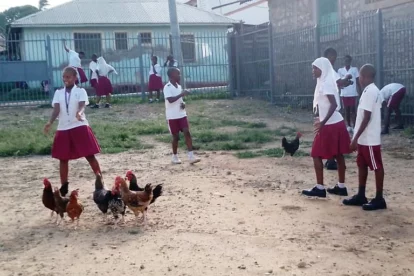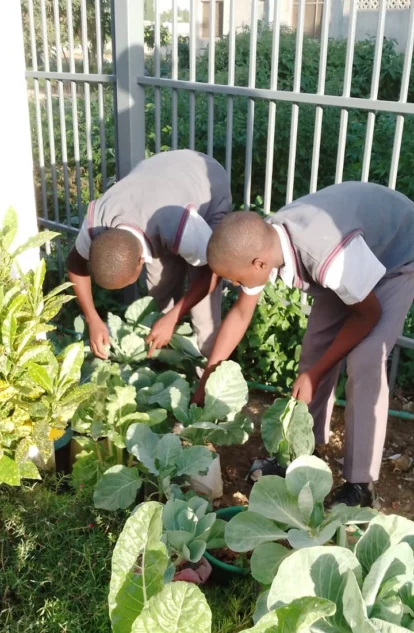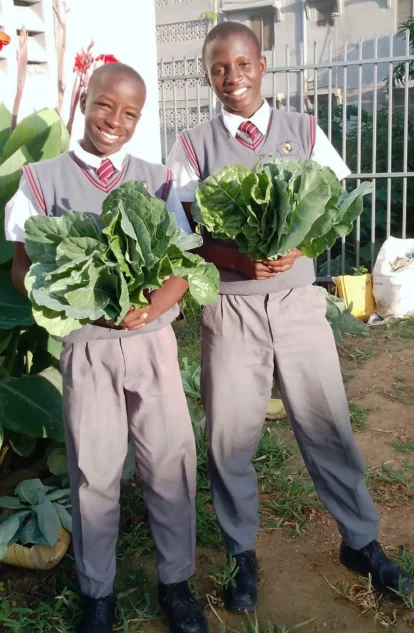
Chickens
Now some subjects don’t need text books and blackboards. They need hands on experience and the materials that go with the subject.
Read more

Agriculture is part of the compulsory syllabus in Kenyan lower secondary school. It encourages the children to learn how to plants seeds, grow on crops and then harvest them. They can then use their own produce to learn domestic science and self-sustainability.
The land beside the school is now being fully utilised to grow crops using the agriculture lessons and their own hard work. They also grow crops in pots on the school roof. The children gain enormous pride in producing their own food. They are also learning how to prepare and cook what they grow as part of their domestic science lessons.
The school rents a plot of farmland on which to grow most of the crops. But this costs around £1,000 per year to rent which is a great deal for a small school to pay for. We do need a sponsor for this rent if you know of anyone? As agriculture is a compulsory subject where the children have to actually work on the land, not just learn the theory, we have to rent the land.
Throughout secondary education there is a big emphasis on agriculture so that the children learn:
It’s a very wide-ranging syllabus that covers all the practical elements of farming, from understanding soil types and maintenance, pests, climactic factors, farm machinery and tools, crop types and production, to name just a few.
And we have also been able to provide the school with chickens to help the children have direct experience of animal husbandry.




Now some subjects don’t need text books and blackboards. They need hands on experience and the materials that go with the subject.
Read more

Mark Arjoo, the president of The Rotary Club of Ashby-De-La-Zouch Castle undertook the challenge of the Great North Swim on June 10th 2023. This involved wild swimming on Lake Windermere. Wow! Not only that, but he decided to raise funds for Empowering Kids in Kenya from this challenge.
Read more

On 10 June 2023, Jan and Keith Hichisson celebrated their golden wedding anniversary. They kindly decided that instead of any gifts, they would prefer donations to go to Empowering Kids in Kenya.
Read more